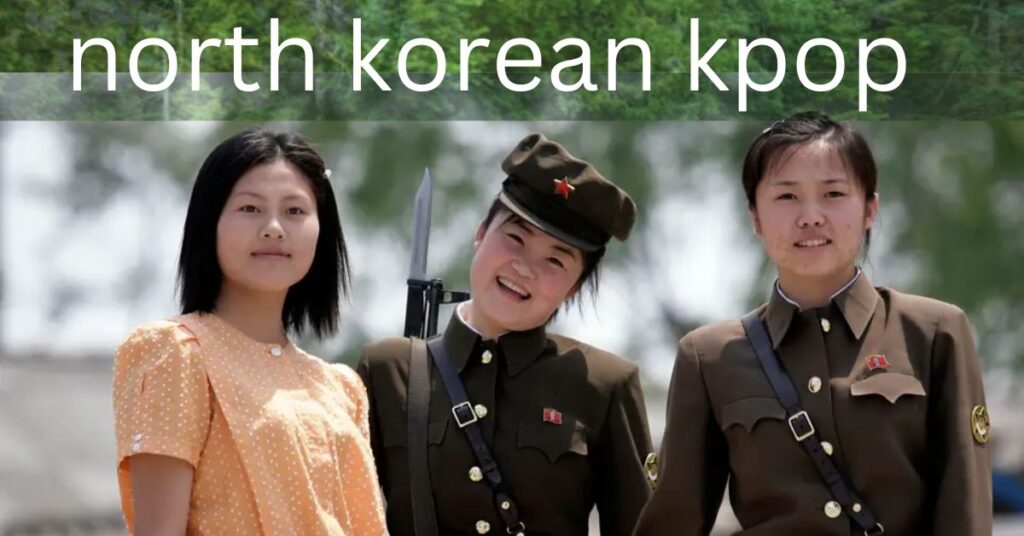
north korean kpop: North Korean K-pop, also known as “Pochonka,” is a unique and fascinating blend of North Korean culture and the catchy, vibrant style of K-pop music. While the K-pop industry primarily thrives in South Korea, North Korea has its own distinct approach to music and entertainment. Despite limited access to global influences, North Korean K-pop showcases the talent and creativity of local artists,
offering a glimpse into the country’s music scene. Although it may differ in style and content from its southern counterpart, North Korean K-pop reflects the nation’s cultural identity and serves as a source of pride for its people. korean
we are currently facing are represented by this situation or scenario. It signifies the obstacles, difficulties, or opposition that we are confronting and need to overcome. It highlights the context in which we are operating and emphasizes the importance of understanding and addressing these challenges effectively. By acknowledging and recognizing what we are up against, we can develop strategies and solutions to navigate and ultimately triumph over these obstacles.korean
A 22-year-old North Korean represents a young individual from North Korea who is at a crucial stage of their life. They may be experiencing the transition from adolescence to adulthood, facing various opportunities and challenges. Growing up in North Korea, they would have been influenced by the country’s unique socio-political environment, cultural traditions, and educational system.
They might have aspirations, dreams, and ambitions that are shaped by their experiences and the society they belong to. Like young adults everywhere, they may be navigating personal growth, education, career choices, and relationships while also contending with the broader complexities of their nation. Understanding the specific circumstances and context of their life can provide insights into the experiences and perspectives of young individuals in North Korea.
North Korean K-pop, also known as “Pochonka,” refers to the unique blend of North Korean culture and the vibrant style of K-pop music. While the K-pop industry predominantly thrives in South Korea, North Korea has developed its own distinct approach to music and entertainment.
Despite limited exposure to global influences, North Korean K-pop showcases the talent and creativity of local artists, offering a fascinating glimpse into the country’s music scene. Although it may differ in style and content from its southern counterpart, North Korean K-pop serves as a source of cultural identity and pride for the people of North Korea.korean
Korea has seen a rise in the popularity of K-pop idols from North Korea in recent years. Despite the political and cultural differences between the two Koreas, several North Korean individuals have successfully pursued careers as K-pop idols in South Korea. These talented artists have captivated audiences with their exceptional singing and dancing abilities, showcasing the power of music to transcend boundaries.
The journey of North Korean K-pop idols in South Korea is often marked by challenges and sacrifices. They undergo rigorous training, adapting to the highly competitive and demanding nature of the K-pop industry. Additionally, they face the complexities of cultural adaptation and adjusting to a different way of life in South Korea.
north korean kpop
| Article Topic | north korean kpop |
| Viral Name | north korean kpop |
| Location | n/a |
| Profession | modle / actors |
| Download Video Quality | 360p | 480p | 720p | 1080p (HD) |
| Video Time | 2 minutes |
| Age | 23 years |
| Famous Name | north korean kpop |
| Download Link | Click Here |
| Post-Category | Viral Video |
These idols serve as ambassadors of unity and bridge the gap between the two Koreas through their music. Their success not only brings joy to fans but also promotes cultural exchange and understanding. Their stories inspire others, demonstrating that dreams can be pursued despite the obstacles that may arise.
The presence of North Korean K-pop idols in South Korea signifies the power of music to connect people, break down barriers, and create a shared sense of appreciation and admiration for talent and artistry.
The journey of North Korean individuals pursuing careers as K-pop idols in South Korea is a remarkable testament to their talent, determination, and resilience. Despite the political and cultural differences between the two Koreas, these aspiring artists have managed to overcome numerous challenges and make their mark in the competitive world of K-pop.
For many North Korean K-pop idols, their journey begins with a desire to pursue their passion for music and performance. They undergo rigorous training, often for years, honing their singing, dancing, and stage presence under the guidance of experienced mentors. This training not only helps them develop their skills but also prepares them for the demanding nature of the entertainment industry.
In addition to the intense training, North Korean idols face the arduous task of adapting to a new cultural environment. They must familiarize themselves with South Korean customs, language, and societal norms. This process involves not only learning the language but also immersing themselves in the culture to better connect with their South Korean peers and audience.
Furthermore, North Korean idols often have to leave behind their families and loved ones in pursuit of their dreams. The physical separation and emotional toll can be challenging, but their determination to succeed and make a name for themselves drives them forward.
The success of North Korean idols in South Korea serves as a symbol of hope and unity. Their achievements not only showcase their individual talent but also demonstrate the power of music to bring people together, transcending political boundaries. Through their performances, they foster cultural exchange and understanding, promoting peace and harmony between the two Koreas.
The journey of North Korean individuals becoming K-pop idols in South Korea is a testament to their unwavering dedication and the transformative power of music. It inspires others to follow their dreams, reminds us of the universal language of music, and highlights the potential for reconciliation and unity even in the face of adversity.